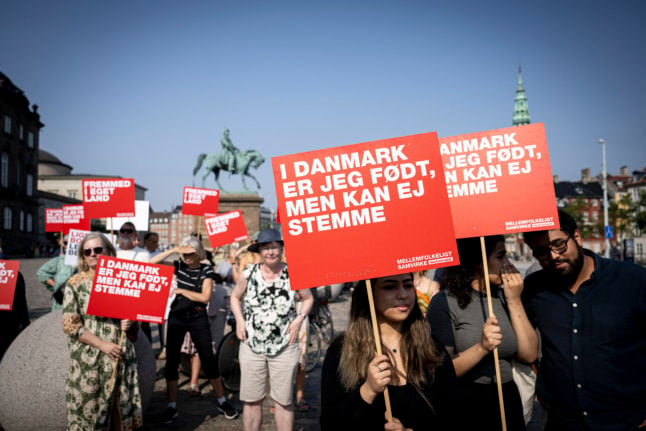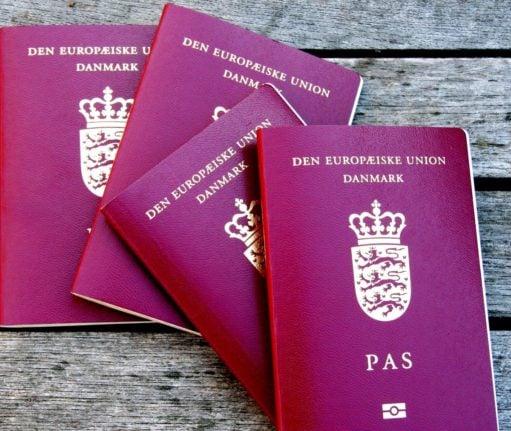Around 2,600 new Danish citizens on Sunday attended an event for people who have become naturalised Danes this year.
Citizenship Day, which has been an annual event in Denmark since 2006, was attended by around 2,600 new Danes according to parliament, making this year’s participation the largest on record for a single year.
The rules for qualifying for citizenship in Denmark are some of Europe’s strictest, with many unable to qualify until they have lived in the country for nine years and some people ineligible even though they were born in Denmark.
A string of criteria related to length of residence, financial self-sufficiency, language and cultural knowledge, employment history and criminal records are applied to applicants for citizenship.
READ ALSO:
- How to apply for citizenship in Denmark
- Do children born in Denmark automatically get Danish citizenship?
- EU Court says Denmark can strip citizenship of adults born and raised abroad
The number of people who reside in Denmark, but are not Danish citizens, has increased from 1.9 percent in 1980 to 10.5 percent today.
Critics of existing citizenship rules have argued in the past that fencing off citizenship to a large proportion of long-term residents is creating a democratic deficit.
Around half a million people living in Denmark today are not Danish citizens. This includes a significant proportion who were born and raised in the country.
READ ALSO: Danish citizenship rules ‘partly to blame’ with one in seven in Copenhagen unable to vote
In an opinion piece in newspaper Jyllands-Posten on Sunday, MPs Samira Nawa and Christian Friis Bach of the Social Liberal (Radikale Venstre) party again highlighted the issue.
“Citizenship Day is a good opportunity for us to look ourselves in the eyes and ask if it’s fair for someone born and raised in Denmark – who has always done what is asked of them – not to have the right to Danish citizenship. We don’t think so,” they write.
The Social Liberals want to address the issue, in part by allowing years spent in education to be given equivalence to full-time work for citizenship claims, the MPs state.
Current rules require a certain number of years of employment in Denmark to be eligible for naturalisation. Education does not count towards this, meaning young people who have lived and attended school in Denmark throughout their youth often fail to meet the criteria.
People demonstrated over the issue in front of the Christiansborg parliament on Sunday, prior to the Citizenship Day event. Protesters held signs with messages including “I was born in Denmark, I can’t vote there”, a play on the lyrics to the national anthem, and “An alien in my own country”. The protest was arranged by organisations Fair Statsborgerskab (“Fair Citizenship”) and Os Udenfor (“Us Outside”).
Nawa and fellow MP Rosa Lund of the left-wing party Red Green Alliance (Enhedslisten) both spoke on stage.
Asked whether it is fair that people born and raised in Denmark don’t always have the automatic right to citizenship, speaker of parliament Søren Gade said the discussion was for another day.
“The rules that decide who gets citizenship are decided here in parliament, so I won’t go into that today. I am only commenting about the many thousands who have fulfilled the criteria and are here,” Gade told news wire Ritzau.
“They have the chance to come in here today and celebrate. The political discussion must take place in parliament,” he said.
Gade congratulated attendees at the citizenship event on their new democratic rights in Denmark.
“With citizenship follows the right to vote into parliament. You are thereby part of deciding how Denmark’s society will grow. That’s the biggest gift you can get in a democracy,” he said during his speech.
“I encourage you to support some of the symbols that bind our country together. That is the royal family, the Dannebrog flag, the national football team – the things that give shared experiences,” he said.



 Please whitelist us to continue reading.
Please whitelist us to continue reading.
Member comments